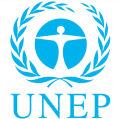Project Database

The Green Economy Joint Programme is a collaboration between the United Nations Development Programme (UNDP), United Nations Environment Programme (UNEP) and United Nations Department of Economic and Social Affairs (UNDESA) to support governments and stakeholders in their post-Rio+20 efforts to green economies through more integrated development approaches that help ensure...
Increasing global demand for biomass has increased pressure on the agricultural sector and food production in the past decade, especially in Africa. Concepts to increase food security while attending growing demands for non-food biomass and developing alternative biomass sources are still in their infant stages. BiomassWeb aims therefore at contributing...
Sustainable development will strongly depend on the secure and safe availability of food, water, energy, and industrial raw materials, which will increasingly be based on renewable resources. In this rapidly evolving context, the fundamental challenge is to frame the reliance on biomass without undermining the long-term productivity of agriculture and...

The Government of Ethiopia (GoE) recognizes that environmental sustainability and inclusive growth are critical for Ethiopia to reach middle-income status by 2025 and achieve poverty reduction goals outlines in the country’s Growth and Transformation Plan (GTP). In support of these goals, the GoE launched the Climate Resilient Green Economy (CRGE)...

New development partnerships present opportunities for African governments to harness investment flows and establish trade relationships for adaptation and mitigation activities. China and the EU are obvious partners in this endeavour. China is now considered to be the continent’s largest trading partner and is investing widely in infrastructure. It has...
